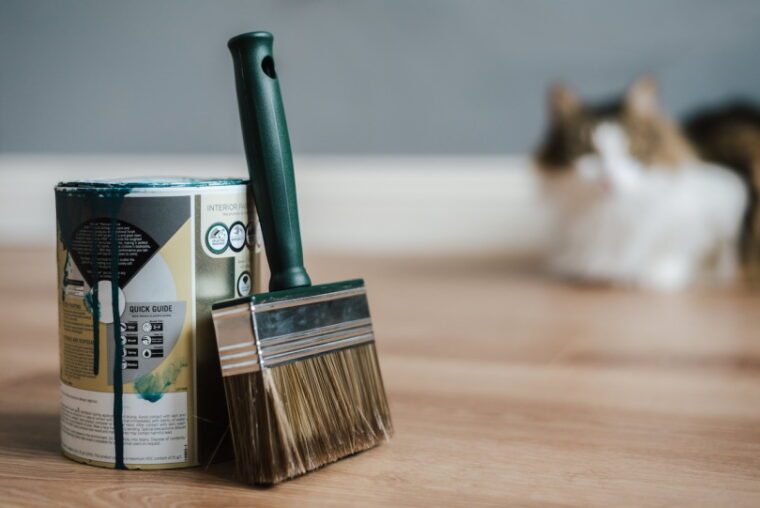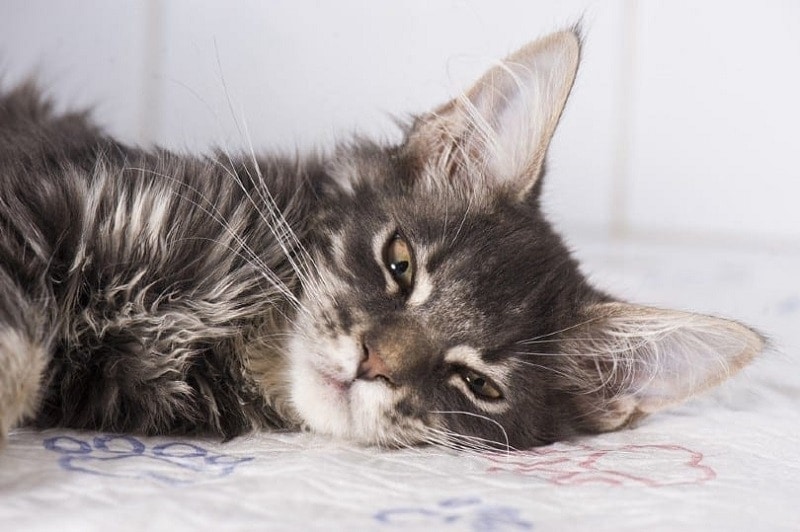
Cats can be very curious and agile by nature. Oftentimes, when they have their mind set on something, they can get into hard-to-reach places. So, it’s essential to be prepared if your cat manages to get into your stash of paints. Some paints are toxic to cats while others aren’t. So, you’ll have to react differently depending on the type of paint your cat eats. Here’s what you need to do if your cat eats paint.

Paints That Are Safe for Cats
Paint is inedible, so it’s best to keep your cat away from it. However, some paints aren’t as harmful as others. Here are some paints that are generally safe if your cat licks up a small amount:

If your dog ends up eating any of these types of paints, alert your veterinarian and closely monitor its condition in the meantime. Be on the lookout for the following symptoms of poisoning or an upset stomach:
If your cat exhibits any of these symptoms, make sure to get to your veterinarian as soon as possible or go to an animal emergency care clinic.

Paints That Are Dangerous for Cats
Some paints are extremely toxic and require immediate action if your cat ingests them. Here are some paints that are dangerous to cats:
When you notice that your cat has eaten any of these types of paint, contact your veterinarian or the nearest animal emergency care hospital. If your cat has any paint on its body, wash it off thoroughly. You’ll also want to remain as calm as possible to prevent more stress on your cat.
You may be able to help your cat at home with induced vomiting or feeding it charcoal. However, only do this if you’ve received instructions from a veterinarian.

If your cat requires more advanced care, you’ll have to visit your veterinarian or a nearby emergency care facility. A veterinarian can induce vomiting and start IV fluids.
In some cases, your cat may have to be under anesthesia for a veterinarian to flush out its stomach. Post-recovery may involve giving your cat additional medication or supplements to help stabilize its condition.
You can contact the ASPCA Animal Poison Control Center for instructions if you’re ever in doubt. You may have to pay a consultation fee, but it’s better to be safe than sorry and ensure that you give your cat the proper treatment it needs.

Conclusion
The way you treat your cat will be different depending on the type of paint it ingests. Watercolors, finger paint, and acrylic paint are some paints that are generally non-toxic to cats. Highly toxic paints are spray paint, wall paint, and alcohol inks.
No matter the type of paint or how much your cat ingests, it’s best to contact your veterinarian to ensure you know what to do to help your cat. The ASPCA Animal Poison Control Center is another excellent resource that can help you if your cat accidentally swallows some paint.
See also:
Featured Image Credit: Aneta Lusina, Pexels






